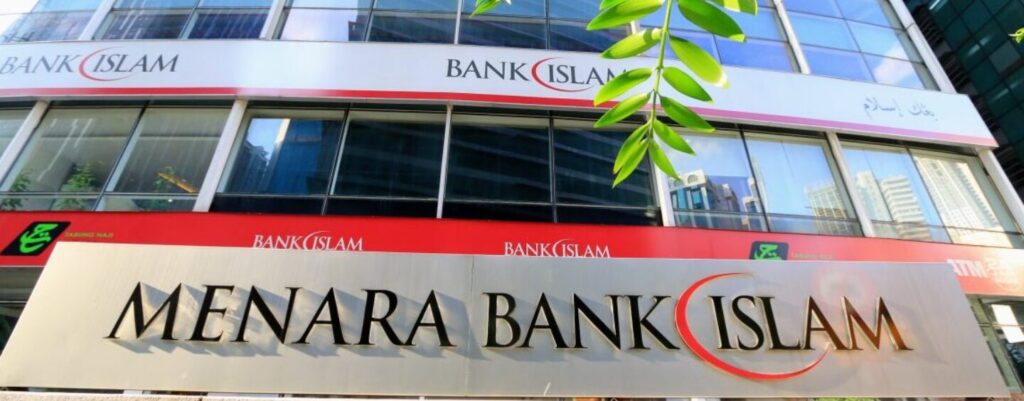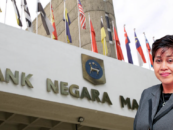
How Malaysia’s Oldest Islamic Bank Is Reinventing Itself Against the Wave of Digibanks
by Vincent Fong July 14, 2022The Malaysian financial services space is undergoing an interesting phase in its evolution, shifting consumer behaviors and entrants of new players are giving incumbent banks reasons to rethink their digital strategy.
Many of Malaysia’s incumbent banks are actively looking at beefing up their digital strategy, spinning off a new digital banking unit, or partnering with fintechs. This is in part thanks to the 5 new digital banking licenses dished out by Bank Negara Malaysia (BNM). These new digital banks are anticipated to launch within the next 24 months.
For Bank Islam’s CEO, Muazzam Mohamed, the route he has chosen is all of the above.
Strengthening their Digital Core
The bank has recently rolled out a 4-year blueprint (2022-2025) which includes significant capital investments into the bank’s IT capabilities.
This blueprint will primarily focus on 3 areas which include; establishing a resilient IT architecture foundation, strengthening skill sets in areas like data analytics, artificial intelligence and machine learning, as well as adopting new ways to enable the IT and business divisions to work together more effectively.
Muazzam stresses that merely having a good digital strategy does not guarantee success, the biggest challenge he says, is always the acceptance by the stakeholders. He adds that it is essential to instil a transformative culture within the organisation to ensure momentum throughout the journey and to allay any fears of being redundant or obsolete.
To that end, Bank Islam had embarked on its CODE21 in 2019, which was aimed at driving a culture of excellence.
Muazzam said that this include “reimagining their core shared values based on TAAT (Think Customer, Act with Integrity, Advance Beyond and Take Charge)”, introducing new behavioural competencies, adopting Kaizen for operational best practices, and providing reskilling and upskilling programmes to increase employees’ digital literacy.

Referring to his employees endearingly as BITIZENs, which stands for BIMB’s Citizens, Muazzam said that it is equally important to invest in both technology and talent — a commitment which he said is shared by his Board of Directors.
In doing so, they have established their own Digital Academy to offer digital upskilling programmes across all job levels for both technical and non-technical staff. The academy also includes programmes where employees will apply what they have learned to come out with prototypes based on real use cases.
Muazzam further commented,
“Our vision is to have a workforce that is ready to embrace change, dare to shake things up and take the leap, while being ready to accept failure in order to move forward. This mindset is key to facilitate generation of new ideas, digital innovation and collaboration to thrive in our workplace.”
Digital Banking Spinoff
In 2021, Bank Islam had set up a new division named the Centre of Digital Experience (CDX) to lay out the foundation to set up a fully digital bank and explore unchartered territories.
The new digital bank, Be U, was made available for downloads in the Apple App Store and Google Playstore in June with a full launch slated for mid-July. The bank hopes to attract between 350,000 to 400,000 downloads within the first 12 months of launch.
The goal he said, was to broaden Bank Islam’s customer base, capturing and empowering the growing unserved and underserved target segments, particularly the gig-workers, independent contractors, and solopreneurs. Through Be U, they also aim to improve customer access to their Shariah-ESG total financial solutions.

Muazzam stresses that this initiative is not a response to BNM’s newly dished out digital banking licenses but instead it was a response to Malaysia’s rapidly growing digital economy and gig economy. Work on Be U, he said, began two years ago before the licensing framework was issued.
The digital banking unit seeks to leverage technologies like big data and AI to offer personalisation and bite-sized products that are accessible and affordable to all including — micro-savings, micro-financing, and micro-investing.
It’s no secret that the talent war has intensified ever since the licenses were issued, with incumbent banks and digital banks alike all fighting for the already limited pool of talent. The CDX unit was established in part as an incubation lab to attract key tech talent by providing them a fulfilling career development roadmap and room to experiment with new technologies and business models.
Leveraging on Strategic Partnerships
“Digital transformation is a journey, not a destination. There will always be a ‘shiny new thing’ that appears to replace what we have,”
Muazzam said, alluding to the importance of forming partnerships not only with fintechs but also with technology vendors as well. In 2021, Bank Islam signed a partnership with TM One as a service provider to help accelerate their digital transformation journey.
“BIMB has appointed TM One in early 2021 as a service provider in supporting us to accelerate our digital transformation journey, providing us the opportunity to obtain up-to-date solutions and infrastructure, particularly for digital infrastructures such as cloud data centre, cybersecurity and big data analytics.”
He further added that this partnership enables the bank to strengthen their IT infrastructure and capabilities to keep up with the ever-evolving regulations, guidelines, and policies by BNM.
Bank Islam’s CDX had also previously entered into partnerships with Mambu, Experian, and Pod.
The engagement of Mambu allows the bank to configure Shariah-compliant banking products, while Experian will provide eKYC solutions for digital onboarding.
Meanwhile, Pod is a homegrown fintech that enables Malaysians to save in a smarter way. Bank Islam worked together with Pod to develop an alternative credit scoring model to enable a wider net of gig workers to access financial services.
Driving Inclusion with Digital Not Exclusion
While driving financial inclusion through digital solutions is all the rage, we must remember that in Malaysia, the digital divide still exists. It’s important not to lose sight of those who are not as digitally savvy.
Echoing that sentiment, Muazzam expressed that,
“From BIMB’s perspective, the more important issue is financial inclusion – ensuring equal access to financial services for the underbanked and unbanked. Towards this end, we take the deliberate approach to drive the financial inclusion agenda through Islamic Social Finance.
As a provider of financial services, we believe in putting the needs of our customers at the core of our offerings, providing them with multiple channels to our financial services and offerings, while educating and guiding all segments of the society to be comfortable and familiar with digital channels. Technology should be a means to an end, and it should not create exclusion. Technology adoption should not be sophisticated and make it complicated for customers.”
In 2019, they’ve established their own Centre of Social Finance to drive financial inclusion with the ultimate goal of nurturing the next generation of bankable customers and promote upward social mobility for the underserved segment.
He stressed that the industry shouldn’t rush into having customers adopt digital-only channels, especially with the rise of fraud and bad actors. He adds that it is important to educate this segment of customers and protect them from ending up as a victim of fraud, scams, and cyber attacks.








